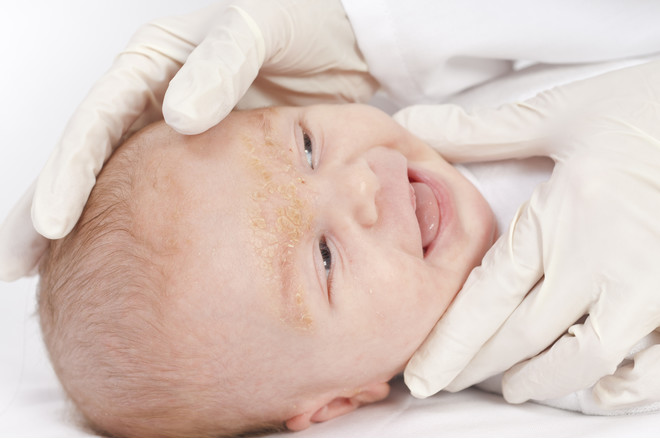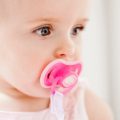Symptoms of allergy in infants
Allergies in newborns manifest themselves in the same way,as in an older child or an adult. Therefore, the mother should be very attentive to any incomprehensible manifestation or change in the behavior, physiology of the baby. Allergies in infants are caused by artificial formulas or improper nutrition of the motherPhoto: Getty Symptoms of allergies in infants can be divided into several groups:
Allergies in infants are caused by artificial formulas or improper nutrition of the motherPhoto: Getty Symptoms of allergies in infants can be divided into several groups:
- gastrointestinal;
- dermal;
- respiratory;
- cardiovascular.
If the allergy has developed in the gastrointestinal tract, the babythe stool will be upset. This can be either constipation or diarrhea, and the contents of the diaper will acquire a greenish color, an admixture of mucus or foam. Constant regurgitation, vomiting, increased gas formation, colic indicate an allergy. Important: these symptoms coincide with other intestinal diseases, so if they appear, you need to consult a doctor. It is easiest to get an idea of the skin manifestation of an allergy in an infant from a photo. Extensive redness, blisters similar to mosquito bites, rashes in the form of tiny red dots, dense pink crusts, flaky areas - all this is a skin reaction to an allergen. Respiratory and vascular hyperreactions are manifested in a runny nose, laryngo- or bronchospasm, Quincke's edema. Edema can develop on any part of the body, including the mucous membrane of the tongue and throat.
Food allergy in infants
Breastfeeding is an important conditionnormal physical and mental development of the baby. In addition, breast milk is a protection against diseases in the first months of life, including allergies. However, mother's milk can cause an allergic reaction in a newborn. Food allergies in infants develop most often. Moreover, sometimes the manifestations affect both the skin and the intestines. Causes of the disease:
- transfer of a newborn to artificial feeding;
- supplementary feeding with ready-mix;
- introduction of complementary foods;
- violation of the mother hypoallergenic diet.
What exactly caused the allergic reaction?difficult to determine. The child is still too young for allergy tests. According to pediatric practice, allergies can develop to such components of formula or baby food as honey, soy, rice, gluten, cow's milk. These same components act as allergens in mother's milk, so if an allergic reaction occurs, a nursing woman should refuse these products, as well as other potentially dangerous foods for an allergic baby: eggs, fish, chocolate, citrus fruits, red apples and berries, condensed milk, caviar, mushrooms. In general, you will have to study the full list of allergenic products and strictly follow a diet. The mother must immediately respond to allergy symptoms and get advice from a doctor. If you start the process, the child may develop such serious diseases as atopic dermatitis, asthma, chronic rhinitis. It is also useful to know:









